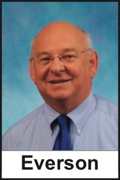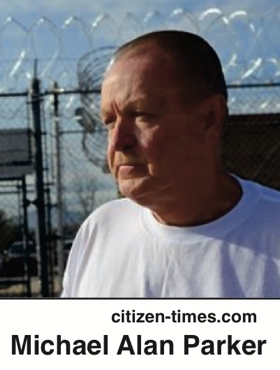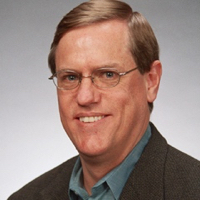Rascals case in brief
In the beginning, in 1989, more than 90 children at the Little Rascals Day Care Center in Edenton, North Carolina, accused a total of 20 adults with 429 instances of sexual abuse over a three-year period. It may have all begun with one parent’s complaint about punishment given her child.
Among the alleged perpetrators: the sheriff and mayor. But prosecutors would charge only Robin Byrum, Darlene Harris, Elizabeth “Betsy” Kelly, Robert “Bob” Kelly, Willard Scott Privott, Shelley Stone and Dawn Wilson – the Edenton 7.
Along with sodomy and beatings, allegations included a baby killed with a handgun, a child being hung upside down from a tree and being set on fire and countless other fantastic incidents involving spaceships, hot air balloons, pirate ships and trained sharks.
By the time prosecutors dropped the last charges in 1997, Little Rascals had become North Carolina’s longest and most costly criminal trial. Prosecutors kept defendants jailed in hopes at least one would turn against their supposed co-conspirators. Remarkably, none did. Another shameful record: Five defendants had to wait longer to face their accusers in court than anyone else in North Carolina history.
Between 1991 and 1997, Ofra Bikel produced three extraordinary episodes on the Little Rascals case for the PBS series “Frontline.” Although “Innocence Lost” did not deter prosecutors, it exposed their tactics and fostered nationwide skepticism and dismay.
With each passing year, the absurdity of the Little Rascals charges has become more obvious. But no admission of error has ever come from prosecutors, police, interviewers or parents. This site is devoted to the issues raised by this case.
On Facebook
Click for earlier Facebook posts archived on this site
Click to go to
Today’s random selection from the Little Rascals Day Care archives….
Click for earlier Facebook posts archived on this site
Click to go to
Today’s random selection from the Little Rascals Day Care archives….
Salem to Edenton was a road heavily traveled
 Feb. 9, 2015
Feb. 9, 2015
The Little Rascals Day Care case has often been likened to the Salem Witch Trials, but this lengthy list from “Understanding The Crucible: A Student Casebook to Issues, Sources, and Historical Documents” by Claudia Durst Johnson and Vernon Johnson (1998) drives home the point:
- Both involved children as accusers.
- Convictions were determined almost solely on the basis of the children’s testimony.
- Everything escalated rapidly – the number of children involved, the number of the accused, and the different kinds of charges.
- The minds of the children were in both cases manipulated by adults.
- Charges were instigated by adults who held grudges against the accused.
- There was an absence of corroborating evidence.
- “Fanciful” testimony was regarded seriously. In Salem, it was spectral evidence. In the twentieth-century cases, it included children’s stories of spaceships, sharks, and ritual murder.
- Community hysteria arose from the feeling that evil – witches and sex abusers – had access to their children.
- “Poppets” or dolls were involved. In the Salem trials, little dolls were immediately seized upon as poppets used by witches to pierce with pins with the object of inflicting torture. In sexual abuse cases, “anatomically correct” dolls were used by psychologists to coach details from the children.
- There were charges that satanic rituals were conducted.
- The prosecution showed a single-minded determination, by threat or bribe, to get the accused to confess.
- The prosecution showed a single-minded determination, by threat or bribe, to get children to disclose more and more details of misconduct without regard to truth.
What made Mark Everson an expert witness?
 July 2, 2012
July 2, 2012
Perhaps the prosecution’s most influential expert witness during the 1992 trial of Bob Kelly was psychologist Mark Everson, director of the Program on Childhood Trauma and Maltreatment in UNC Chapel Hill’s department of psychiatry.
Here’s how Everson responded to a defense expert’s testimony that children are suggestible and should not be repeatedly interviewed: “It’s kind of naïve. It’s the kind of statement you really wouldn’t make if you worked with these kids.”
In a Charlotte Observer interview 10 years later, Everson seemed unmoved by the continuing wave of scientific research exposing the fallacy of “Children don’t lie.” He said he found it hard to believe that every Little Rascals child-witness had been badly interviewed and confused: “There’s so much smoke there, it’s hard to imagine there’s no fire.”
Where there’s smoke there’s fire?
Good lord. I wasn’t surprised to hear such naivete from a juror – “Something must have happened,” one told Ofra Bikel — but from a respected UNC faculty member whose opinion influenced whether Bob Kelly would be convicted and imprisoned?
Last week I emailed two questions to Everson at his Chapel Hill office:
– Have you changed your mind?
– How much credence do you give researchers such as Ceci and Bruck who have demonstrated the unreliability of child-witnesses?
I’ve yet to hear back.
But it’s hard to optimistic about a possible reassessment when Everson continues to choose Kathleen Coulborn Faller as his most frequent coauthor.
N.C. judge throws out ‘ritual abuse’ conviction
 Aug. 28, 2014
Aug. 28, 2014
“ASHEVILLE, N.C. – After more than 20 years behind bars, Michael Alan Parker, 57, walked past the barbed wire gates of Craggy Correctional Center and looked out at the mountain skyline on Tuesday morning.
“Convicted of sexually abusing his three children in a 1994 trial charged with allegations of Satanism, Parker was freed after Superior Court Judge Marvin Pope ruled Monday that the medical evidence would no longer be interpreted as proof of sexual abuse. Pope vacated Parker’s sentence and dismissed the charges against him….
“Parker was first jailed in February 1993, when he and several codefendants were accused of abusing Parker’s three children in and near their home in Saluda, N.C.
“At trial in 1994, Parker’s children testified in graphic detail about abuse that prosecutors labeled ritualistic. The 9-year-old girl testified that she had been sexually abused in a garage behind their home. She said a fire was burning inside a circle made of rocks, and she heard people chanting in soft voices.
“In an emotion-charged atmosphere, then-Assistant District Attorney Mike Edwards called the trailer park where the family lived ‘Sodom and Saluda’ and quoted the Bible in his statements to the jury….”
– From “Henderson County man walks free after 20 years in prison“ by Renee Bindewald in the Spartanburg (S.C.) Herald-Journal
Congratulations are in order for Mr. Parker and his appellate lawyer, Sean Devereux, who had labored doggedly (and often pro bono) on his behalf since 1999.
The similarities to Andrew Junior Chandler’s case are obvious, although the “Sodom and Saluda” allegations in the Parker case were rooted in domestic turmoil rather than in the way-too-familiar day-care fantasy. Most notable is Judge Pope’s recognition that the type of medical validation of abuse presented at trial has been persuasively discredited – see also, the physician’s recantation that set Fran and Dan Keller free.
Will Pope’s decision prove to be an aberration? Or does it presage the breakthrough Junior Chandler has for so long been denied?
In search of justified public panics….

3BLMedia.com
Kevin Drum
March 28, 2016
“I was thinking about recent public panics and started listing a few of them in my mind. This is just off the top of my head:
- Crack babies
- Super predators
- Lehmann/AIG/Countrywide etc.
- Mad cow
- Deepwater Horizon
- Daycare child molesters
- Ebola
- ISIS/Syrian refugees
“I’m not saying that none of these were justified. Big oil spills are no joke. Ebola was certainly a big deal in Africa. The financial collapse of 2008 wasn’t mere panic.
“And yet, generally speaking it seems as if public panics are either completely unjustified or else wildly overwrought. Am I missing any recent examples where there was a huge panic and it turned out to be wholly justified? HIV would have been justified in the early ’80s, but of course we famously didn’t panic over that — other than to worry about getting AIDS from toilet seats. Help me out here….”
– From “Do We Panic Too Much? (Spoiler: Yes We Do)” by Kevin Drum at Mother Jones (March 24)
![]()











0 CommentsComment on Facebook